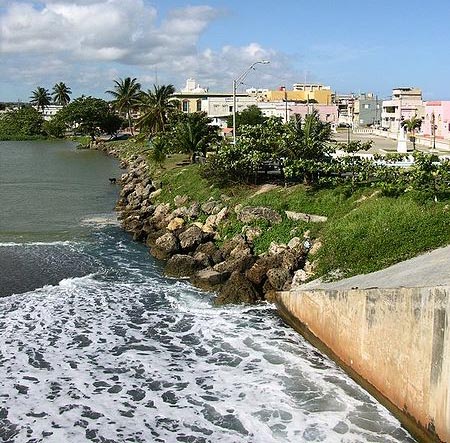Arecibo to pay $35K fine, pump $56M in sewer system upgrades to settle Clean Water Act violations

The town of Arecibo has reached a settlement agreement with the U.S. Environmental Protection Agency to resolve violations of the Clean Water Act and violations of its Small Municipal Separate Storm Sewer System permit, the U.S. Department of Justice and the EPA announced Monday.
As a result, the town will pay a penalty of $305,643 and will invest an estimated $56 million in repairs and upgrades to its existing water treatment and sewage sludge infrastructure to curb polluting the Río Grande de Arecibo in violation of its permit and the Clean Water Act.
This is the first judicial action addressing violations of this type of permit. Under the settlement, Arecibo is required to comply with its Small Municipal Separate Storm Sewer System permit and the Clean Water Act, improve its storm water management program and build a new pump station and three retention basins.
The new pump station and retention basins will enable Arecibo to better manage its storm water flow and prevent flooding in the downtown Arecibo area. The town will further be required to repair, replace or construct storm sewer pipes as necessary, and eliminate interconnections with the sanitary sewer systems.
“This settlement will bring significant improvements to the Arecibo sewer system and cleaner water that the people of Arecibo will enjoy for many years to come,” said Ignacia S. Moreno, assistant attorney general for the U.S. Department of Justice’s environment and natural resources division.
“It is another example of how the vigorous enforcement of the Clean Water Act protects citizens from the very real health threats posed by discharges of sewage contaminated stormwater,” she said.
Replacing sewer pipe and eliminating interconnections will reduce discharges of sanitary wastes to the Río Grande de Arecibo and eliminate sewer backups in residential homes.
“This settlement will benefit public health by dramatically reducing the amount of sewage and other pollutants that get into the Río Grande de Arecibo,” said Judith A. Enck, Administrator for EPA’s Region 2 Office, which oversees Puerto Rico. “Today’s agreement requires an investment in protecting community residents from exposure to raw sewage and contaminated stormwater, now, and into the future.”
Municipal storm sewer systems collect rain from streets and drain to local rivers and streams. Sewage lines or industrial discharges can be improperly connected to the storm sewer, leading to raw sewage or other pollutants reaching water bodies. Discharges from municipal storm sewer systems can also include infiltration from cracked sanitary systems, spills collected by drain outlets, or paint or used oil dumped directly into a drain.
These discharges contribute heavy metals, toxics, oil and grease, solvents, nutrients, viruses and bacteria to receiving water bodies.
The consent decree is subject to a 30-day public comment period and final court approval.















